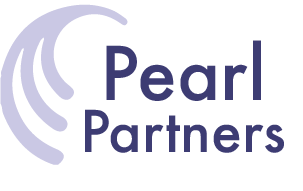We hear a lot about the need to break down silos, to look outside of the usual venues for innovative ideas, and to embrace new points of view. In this day and age, we have access to more information from more sources than ever before. At first glance, it would seem that the task of collecting different ideas and points of view would be easier than ever.
Unfortunately it doesn't always play out that way. Because there is so much information out there, the new challenge is in filtering out what is relevant from what is not, and this task is as daunting as finding new information used to be. Think about this the next time you search for information. How are you determining the relevance? What are your filters? I do believe that people need filters to help them to cut through all the daunting information out there. However, what I'm finding is that it is now the filters that are limiting the diversity of the ideas and points of view, rather than the desire to seek out what is new.
Filters are useful to the extent that they are used to focus the mind to recognize relevant information. But how often do you notice when people are using irrelevant filters? For example, if a certain author or expert provided useful information in the past, their point of view may be less likely to be questioned in the future. It becomes a shortcut that is intended to save time, but can result in blind following and group think. As I've said before, there is no excuse for not thinking about what you are doing. Especially in the realm of innovation, every problem is unique and a new filter must be created for every query for new information. This doesn't need to take a lot of time, but it does require that you stop and think before blindly accepting or dismissing new information or sources.
What filters are you using as you make decisions about new ideas or points of view? If you ask yourself if they are relevant to your current task at hand, you may be surprised at your answer.

Effective filtering is the new search. It’s the next frontier in information management. Search is about Where is X?; Filtering is about Show me what we have on/related to X; who we can trust on X, the X-files and conversations, etc. Search is about finding; Filtering is about having. Search is about where; Filtering is about who. I think it’s about trust.
@cdn
Christian thank you for bringing the concept of trust into the conversation. So then my question could be rephrased as who can we trust to figure out that we are searching for information on X and not Y? If we get that right, then we can still trust our sources on X, but not to rely on blind faith that they will be able to guide us if we’re really looking for Y.